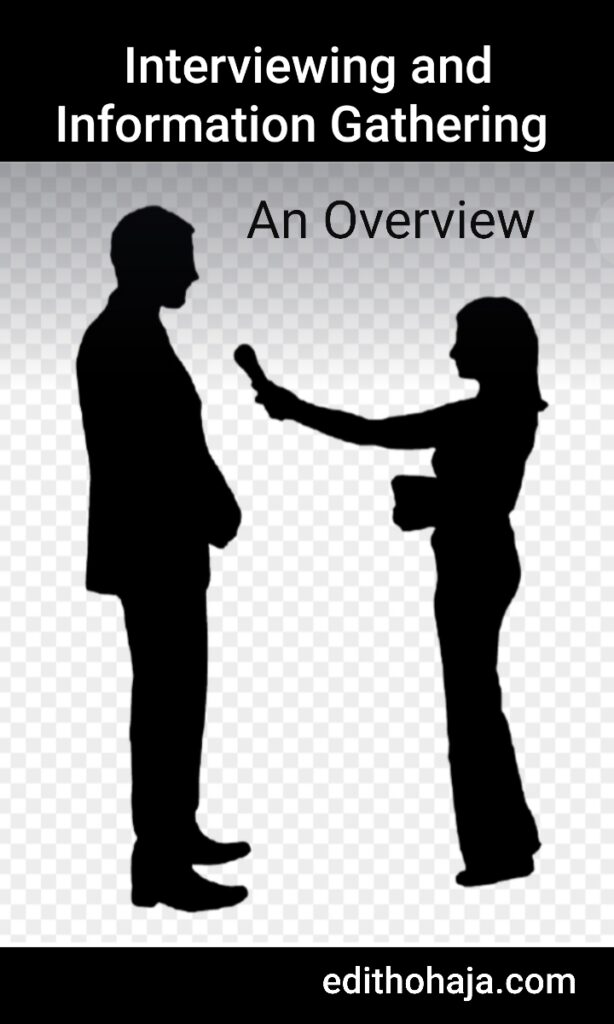Interviewing and Information Gathering: An Overview
This post gives a bird’s eye view of the course Interviewing and Information Gathering. It briefly shows the context and rationale for the course. It locates the course in the centre of media purpose and function to aid students follow as the various aspects are taught.
To inform is to acquaint people with what is happening around and beyond them. But information according to the Britannica Dictionary is “knowledge that you get about someone or something, facts or details about a subject.”
On my part, I would define information as:
Knowledge, facts or expressed ideas about different aspects of life, the physical environment and the organisms/species that populate it.
Information can be on anything or anyone. We live in an age that thrives on information. We have access to vast amounts of it, we keep accumulating more and have devised sophisticated means of processing it to serve all kinds of purposes.
One of the functions of the media as stated by Harold Lasswell is surveillance – checking the environment and updating people on what is going on. Put in another way, the media are expected to provide people with information.
In the media, information can be classified according to its purpose.
Information that keeps people abreast of what is happening now is called news. It is used to tell people about the latest occurrences that might interest and benefit them. So not all information about what is happening now is reported by the media for the aforementioned reason. That is, the media have criteria for sifting out what to report as news and what to ignore based on their importance and the interest they are likely to generate, among other reasons.
Some information tell people about what is yet to happen. This can also be put in news form and they are called advances (reports to notify people of scheduled events). But when delving into the future involves people who have special interest and training telling the public what is likely to happen, it is called forecast (e.g. weather forecast) or punditry (e.g. predictions of election results) or modelling (mathematical calculations to show the chances of something happening).

Another type of information would be research findings and statistics that shed light on issues (data).
This list is by no means exhaustive but it shows how pervasive information is in the contemporary world.
However, most people are unable to access all the information they need.
Why?
Many people are too busy making a living to find all the information they need. A lot of them would not even know where to look. That is why society is so structured that an institution – the press or the media – is tasked with the responsibility to assemble and categorise information for people. This is like what the school as a social institution does: help people educate their children while they work to provide for their families’ needs. This is called reporting or news reporting.
Even if people were to have time to search out information on their own, they would not often be able to make sense of it.
The media come in again to help simplify information and show people how it is relevant to them. This is interpretation of news.
Society has evolved from a time when people were scattered and did not know what was happening in the next hamlet to a situation where the whole world is interconnected in what Marshall McLuhan called a global village. So the problem today is more of sensible consumption of information rather than lack of it due to information overload.
As mass communication professionals tasked with helping members of society know what is going on, you need to know how to access information – what are the sources you need? And how do you obtain and process information to be meaningful to other members of society?
A major source in information gathering is your fellow humans. That exchange you as a media staff have with another person to elicit information that will help you disseminate the ideas, facts and knowledge that other people need is called interviewing.
Exercise:
- Research all the italicised words in this post to learn more about them.
- Write two sentences to capture the essence of each of these terms.
You may also like these related posts:


This is really nice
This is remarkable…thank you very much ma
A wonderful overview!
This is the best explanation so far I have gotten 👏 🙌
This is very enlightening ma